Timing Your Exit: When to Start Preparing Your Canadian Business for Sale
Timing The Business Sale
Are you prepared to sell your business in Canada? The timing of a business sale is crucial, but that's just the beginning. Properly preparing your business for sale is key to ensuring a successful transaction. In this five-part series (Part One: Timing The Business Sale and Preparations), we will explore the essential steps needed to get your business ready for exit.
Stay tuned!
Key Takeaways: Timing Your Exit
- Timing is crucial for maximizing your sale price and ensuring a smooth transition.
- Consider market conditions, personal circumstances, and your business’s life cycle when determining your exit timeline.
- Start preparing at least 2-5 years before you plan to sell.

So, you’re thinking of selling your Canadian business. That’s a big step! But before you start packing up your office or drafting a “For Sale” sign, there’s a crucial question to consider: when is the right time to start preparing?
Many business owners make the mistake of thinking they can just decide to sell one day and have it done within a few weeks. Unfortunately, it rarely works that way. Proper preparation takes time—often much more time than you might expect.
Fun Fact: only one in 10 business owners (9%) have a formal business succession plan in place!
Why Timing Matters When You Start Saying: Sell My Business In Canada
Think of selling your business like selling a house. You wouldn’t just throw a “For Sale” sign on a cluttered, unmaintained property and expect top dollar, would you? The same principle applies to businesses. Timing your exit strategically can make a huge difference in:
- Maximizing Your Sale Price: Market conditions, industry trends, and your business's overall health all play a significant role in determining its value. Timing your sale to coincide with favourable conditions can significantly boost your sale price.
- Attracting the Right Buyers: Certain industries are more attractive to buyers at certain times. Understanding these trends can help you target the right buyers and increase your chances of a successful sale.
- Ensuring a Smooth Transition: Proper preparation takes time. Starting early allows you to address any potential issues, optimize your financials, and ensure a seamless transition for both you and the buyer.
Factors Affecting When to Sell a Business in Canada
So, how do you determine the optimal time to start preparing? Here are some key factors to consider:
Market Conditions for Selling a Business in Canada
Is the market currently favourable for business sales? Are buyers actively looking to acquire businesses in your industry? A strong market generally means higher valuations and more interest from potential buyers. For example, if interest rates are low and access to capital is easy, this can create a seller’s market.
Personal Circumstances for Selling a Business
Are you approaching retirement? Are you experiencing burnout? Do you have other personal or financial goals that are influencing your decision to sell? Your personal circumstances should be a major factor in determining your exit timeline.
Anecdote: Khaled once worked with a business owner who was eager to retire but hadn't started preparing his business for sale. Because of this, he ended up having to work an additional two years to get the business in sellable shape, delaying his retirement.
Business Life Cycle and Exit Planning
Where is your business in its life cycle? Is it experiencing consistent growth, plateauing, or declining? Businesses in a growth phase are generally more attractive to buyers.
Planning for Business Succession Timeline
If you are considering succession planning, it is important to have a timeline in place. This will allow you to properly train and prepare the next generation of leaders.
How Early to Start Planning Business Exit
As a general rule of thumb, it’s recommended to start preparing for an exit at least 2-5 years before you actually plan to sell. This allows you ample time to:
- Optimize Your Financials: Improve profitability, clean up your books, and ensure accurate financial records.
- Streamline Operations: Improve efficiency, reduce costs, and enhance your business’s overall performance.
- Address Any Legal or Operational Issues: Resolve any outstanding legal matters, contracts, or operational inefficiencies.
- Build a Strong Management Team: Ensure you have a capable team in place to manage the business during the transition.
To illustrate the importance of this timeline, especially for a manufacturing business like
metal fabrication in Canada, here's a helpful table:
| Timeframe Before Sale | Key Preparation Activities | Example for a Metal Fabrication Business |
|---|---|---|
| 5+ Years | Begin high-level exit planning, identify personal and financial goals, analyze market trends, assess business strengths and weaknesses, begin succession planning if applicable. | Research market demand for metal fabrication in Canada, identify potential buyers (larger manufacturers, private equity firms), assess the business's competitive advantages (specialized equipment, skilled workforce), begin documenting key processes. |
| 3-5 Years | Focus on optimizing financial performance, streamline operations, address any legal or operational issues, develop a strong management team, conduct a preliminary business valuation. | Invest in new CNC machinery to improve efficiency and attract buyers seeking modern equipment, implement lean manufacturing principles to reduce waste and improve profitability, review contracts with suppliers and customers, develop training programs for key employees, obtain a preliminary business valuation from a qualified appraiser familiar with manufacturing businesses in Canada. |
| 1-2 Years | Prepare detailed financial statements, gather necessary legal and operational documents (contracts, permits, environmental assessments), refine business valuation, begin marketing the business (if appropriate), engage with potential buyers. | Compile 3-5 years of audited financial statements, organize all permits, licenses, and environmental compliance documentation, update the business website and marketing materials to highlight key strengths and recent improvements, network with industry contacts and attend trade shows to identify potential buyers, prepare a comprehensive information memorandum. |
| 6-12 Months | Finalize due diligence materials, negotiate terms with buyers, secure financing (if necessary), prepare for the transition of ownership. | Respond to buyer inquiries and due diligence requests, negotiate the purchase agreement with legal counsel, secure financing if the buyer requires it, develop a transition plan to ensure a smooth handover of operations, including training and knowledge transfer to the new owner. |
| During Sale | Complete the due diligence process, finalize legal agreements, transfer ownership, assist with the transition as needed. | Work closely with the buyer during the due diligence period, finalize all legal documents, transfer ownership of assets and intellectual property, provide training and support to the new owner as needed to ensure a seamless transition for employees, customers, and suppliers. |
Example: Let's say a metal fabrication business owner in Ontario wants to retire in 5 years. By starting the exit planning process now, they can:
- Year 1-2: Invest in upgrading their welding equipment and implementing a new inventory management system to improve efficiency and profitability. This makes the business more attractive to potential buyers.
- Year 2-3: Focus on securing long-term contracts with key clients, providing stability and predictable revenue for the new owner.
- Year 3-4: Engage a business valuator specializing in manufacturing businesses to get a professional assessment of their business's worth. Stop the guess work. Get a professional business valuation.
- Year 4-5: Begin discreetly marketing the business to potential buyers and preparing all necessary documentation for due diligence with the help of a certified manufacturing business broker like Khaled Baranbo.
This proactive approach not only maximizes the business's value but also ensures a smoother, less stressful transition for the owner.
Recap: Timing Your Biz Sale
- Timing is crucial for maximizing your sale price and ensuring a smooth transition.
- Consider market conditions, personal circumstances, and your business’s life cycle when determining your exit timeline.
- Start preparing at least 2-5 years before you plan to sell.
Next Step:
Now that you understand the importance of timing, it’s time to dive into another crucial aspect of exit preparation. Click here to learn more.
understanding business valuation
Have Questions? We've Got Answers
Get in this queue for a whale’s tail. They are a beauty, eh
We just wanted to say hi and thanks for stopping by our little corner of the web. :) “Go ahead and eat your elephant ears on the chesterfield. I’ll come sit with you as soon as I take these runners off.” But, alas, this is the Internet.
However, we think you'll love our email newsletter about building value and properly position your manufacturing company before transition/exit your business.
As a special welcome gift for subscribing, you'll also get our helping and educational guides, tips, tutorials, etc.. for free.
It's filled with the best practices for retiring serial business owners like Joseph-Armand Bombardier, John Molson, Warren Buffett and many more.
Just sign up for our emails below.



